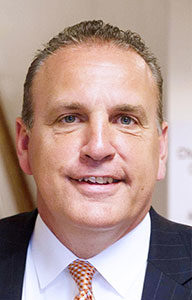Focal Passage: Psalm 32:1-7
 Can a person who has sinned be restored to usefulness in the kingdom of God, especially a Christian leader?
Can a person who has sinned be restored to usefulness in the kingdom of God, especially a Christian leader?
This has been an age-old question in the church since the Donatist controversy of the fourth century — does the efficacy of the work of the church (the ordinances) solely depend on the character of the minister or does their efficacy reside in and of themselves? The answer is not as easy as one might think.
The power of the gospel is self-reverential. Yet, we know that the character of the minister can greatly discredit the gospel message. The character of the minister must coincide with the content of the gospel. This is why we must get the issue of restoration right.
Psalm 32:1-7 is King David’s lament over his own sin and a pathway to restoration. Four truths are essential to restoration.
Truth No. 1 — God forgives (Psalm 32:1-2). Restoration begins with this singular truth – God forgives sinners. David writes in Psalm 32:1-2 that “transgression is forgiven” and “sin is covered” by our great and gracious God. Further, it is a gracious truth to know that God “does not charge with iniquity” any person “in whose spirit is no deceit.”
Truth No. 2 — Confession of sin is essential (Psalm 32:3-5). While the truth of God’s forgiveness is amazing, the need for us to confess our sin is essential. God does not forgive unrepentant sinners. True humility and repentance are essential prerequisites to God’s forgiveness.
King David confesses that as long as he “kept silent” about his sin he experienced inner turmoil. All day long his unrepentant soul felt the weight of his unconfessed sin. Hiding sin drained his strength.
But when King David confessed his sin, he discovered this amazing truth as noted in Psalm 32:5, “ ‘I will confess my transgressions to the Lord,’ and you forgave the guilt of my sin.”
Truth No. 3 — Restoration Guards Against Future Sin (Psalm 32:6-7). Once King David confessed his sin, a hedge of protection was set up around his heart that guarded him against future fails. So long as David remained in this protective relationship with God, he would avoid the type of failure that he experienced with Bathsheba.
Like flood waters that cannot reach a high place so, too, are those who trust God and guard their steps. King David writes in Psalm 32:7, “You are my hiding place; you protect me from trouble. You surround me with joyful shouts of deliverance.”
Truth No. 4 — Does restoration equal a return? But does restoration mean that a person can return to his/her previous place of service or relationship as if nothing happened?
While God can and does forgive the repentant sinner, acting as if nothing happened or that a person might return to his/her exact place of service depends on the severity of the sin, the circumstances of the situation, and other extenuating issues.
God forgives sin. He cannot always remove the scars caused by our sins. This is why we must guard ourselves from the kind of debilitating sin that not only destroys our souls but keeps us from being useful in the kingdom of God. B&R

